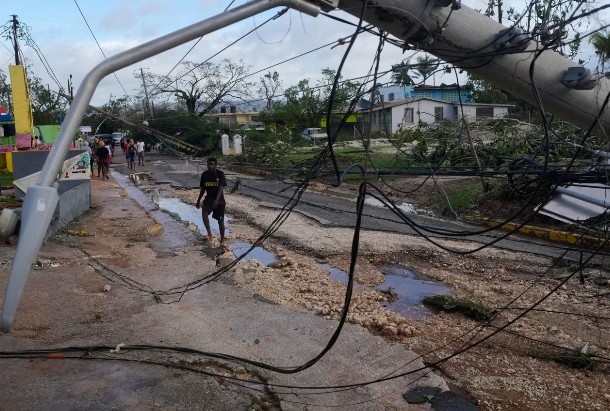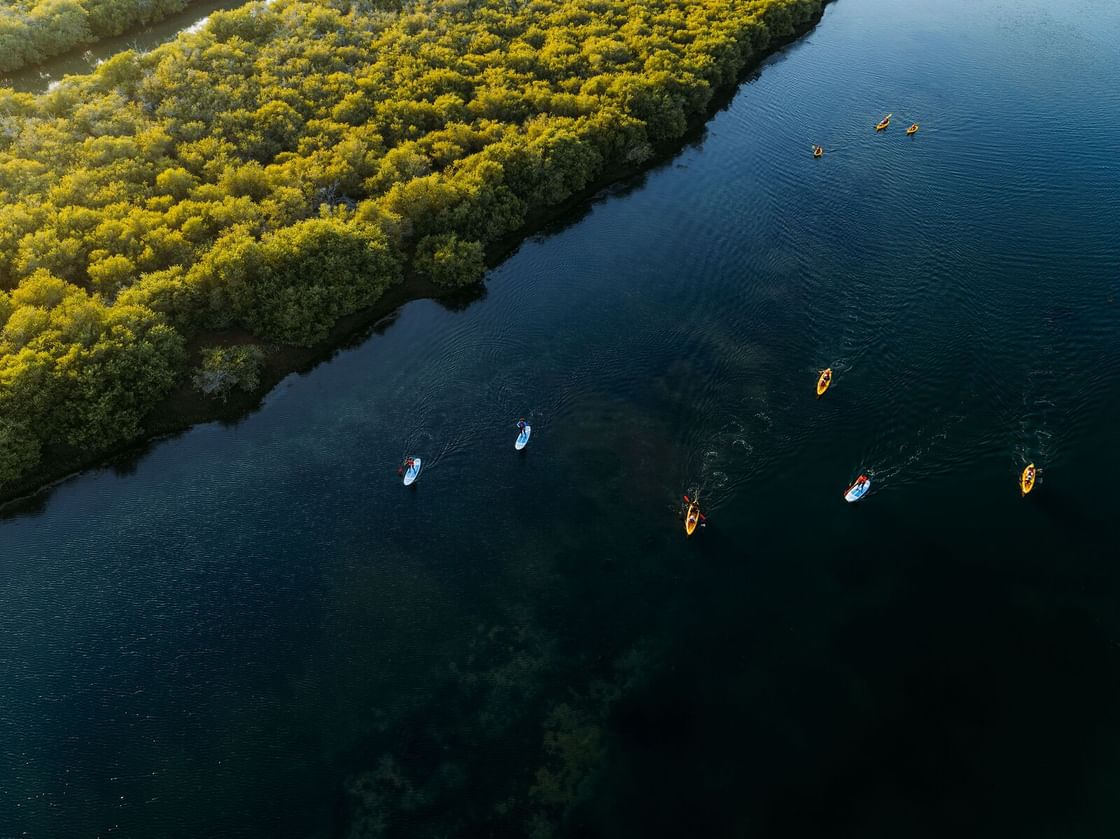Hurricane Melissa leaves a trail of destruction across the Caribbean, claiming lives, wiping out homes, crippling infrastructure and triggering urgent global relief efforts amid rising humanitarian needs…reports Asian Lite News
The Caribbean is reeling from the catastrophic impact of Hurricane Melissa, a record-breaking storm that tore through multiple islands this week, leaving death, destruction and a long, painful recovery ahead for millions. As authorities struggle to restore essential services and reach isolated communities, the confirmed death toll continues to climb, with fears that the true scale of loss is yet to emerge.
Hurricane Melissa struck Jamaica as a Category-5 monster — among the most powerful Atlantic storms ever recorded — before weakening slightly and sweeping across Cuba, Haiti and the Dominican Republic. The United States National Hurricane Centre (NHC) has warned that the threat is far from over, cautioning that life-threatening flash floods, landslides and hazardous sea conditions would persist even as Melissa moves north-east toward Bermuda.
Emergency crews across the region are racing against time amid downed power lines, washed-out roads and collapsed bridges, with communications still severely disrupted in several areas. More than 30 deaths were confirmed by mid-week across Jamaica, Haiti and neighbouring territories — a number expected to rise as rescuers push deeper into remote areas.

Jamaica: ‘Ground zero’ of the storm
Jamaica bore the brunt of Melissa’s fury. The southern parish of St Elizabeth emerged as one of the worst-hit areas, with authorities confirming multiple deaths after bodies were swept away by raging floodwaters. Prime Minister Andrew Holness described the devastation in the coastal community of Black River as “ground zero”, noting that as many as 90% of roofs in the area had been destroyed.
The island’s main international airport reopened late Wednesday, allowing the first wave of emergency aid flights to land. Helicopters ferried food, water and medical supplies to communities cut off by landslides and ruptured roadways. Nearly 77% of the island remained without power on Thursday, with more than 25,000 people sheltering in emergency centres.
“We are still coming to grips with the destruction,” Prime Minister Holness said, adding that the focus remained on life-saving support and restoring critical infrastructure.
Haiti suffers heavy losses
In Haiti, where fragile infrastructure and prolonged political turmoil have left the country acutely vulnerable to natural disasters, the storm triggered deadly floods and landslides. Officials reported at least 25 people killed and more than 18 missing, with children among the victims. More than 80 homes were destroyed in the southern city of Petit-Goâve alone, and tens of thousands of residents remain displaced.
Emergency services said 152 disabled residents in the region were in urgent need of food and medical supplies, underscoring the humanitarian strain now unfolding across the nation.
Cuba battles flooding, infra damage
Cuba’s eastern provinces also felt the storm’s force, although a mass evacuation of more than 735,000 residents prevented loss of life. Still, widespread destruction has been reported, including toppled power poles, uprooted crops, damaged telecommunication lines and washed-away roads. President Miguel Díaz-Canel chaired a Civil Defence review, praising rescue efforts but cautioning that power and communication outages could persist for days.
In a rare silver lining, Cuban officials noted that persistent rainfall had eased drought conditions in affected provinces.
International support
Offers of international support have started to flow in. The United States signalled readiness to assist Cuba and its Caribbean neighbours, with US Secretary of State Marco Rubio expressing solidarity and pledging humanitarian relief “directly and via local partners”. Regional governments and global agencies are also preparing aid packages as the full scale of need becomes clearer.
Melissa weakened to a Category-2 hurricane by Thursday, with sustained winds of around 100 mph, but remained dangerous as it approached Bermuda. Authorities across the Bahamas and Bermuda warned residents to brace for flooding and potential storm surges.
Meteorologists said Melissa tied record intensity levels when it slammed into Jamaica with peak winds of 185 mph, placing it among the most violent storms ever to hit the Atlantic basin. As global temperatures rise, scientists have repeatedly warned of more frequent and more powerful tropical cyclones threatening vulnerable island regions.
For now, the Caribbean faces another familiar yet daunting challenge: recovery and rebuilding — in many places, from almost nothing.














